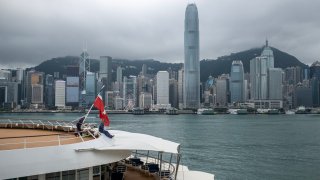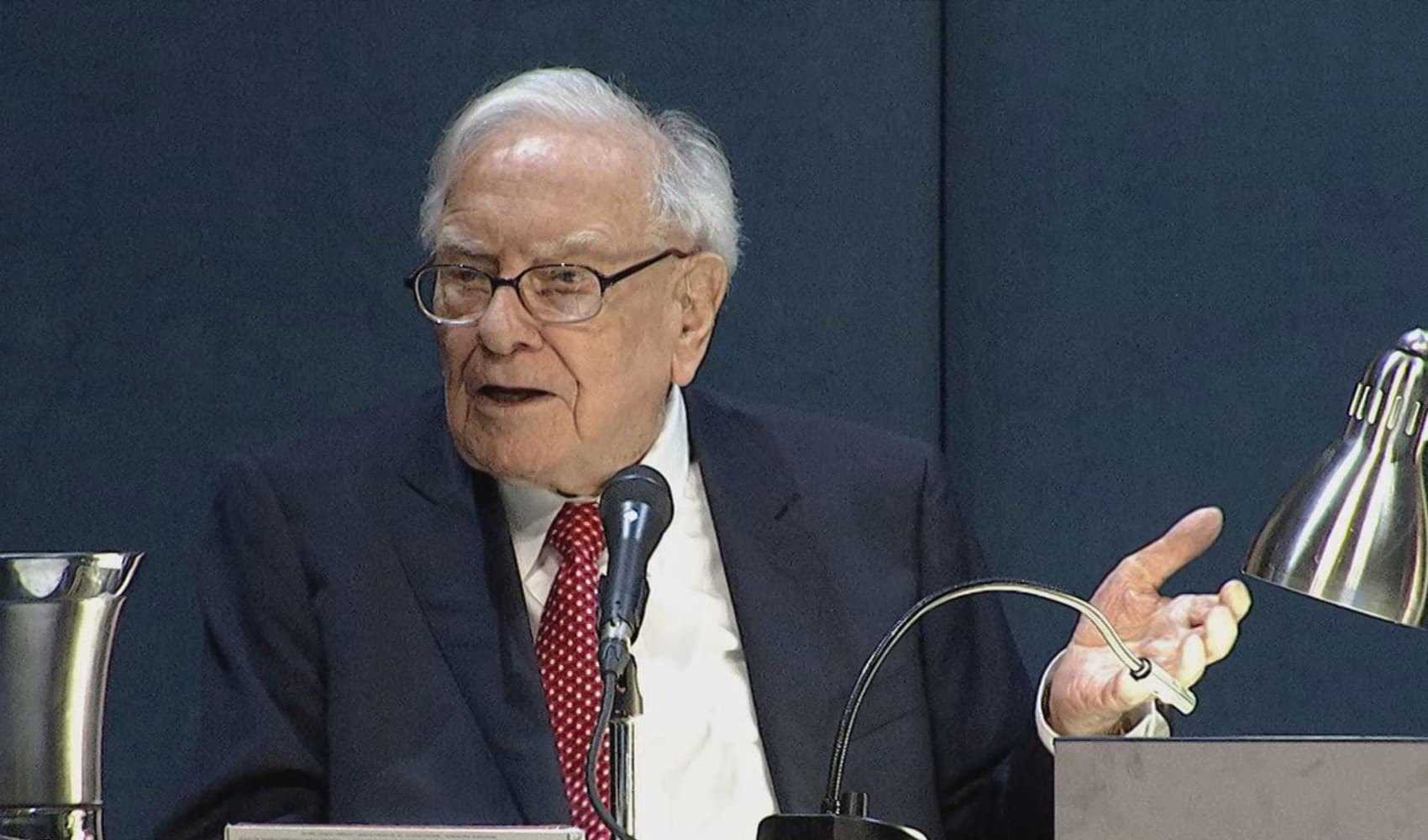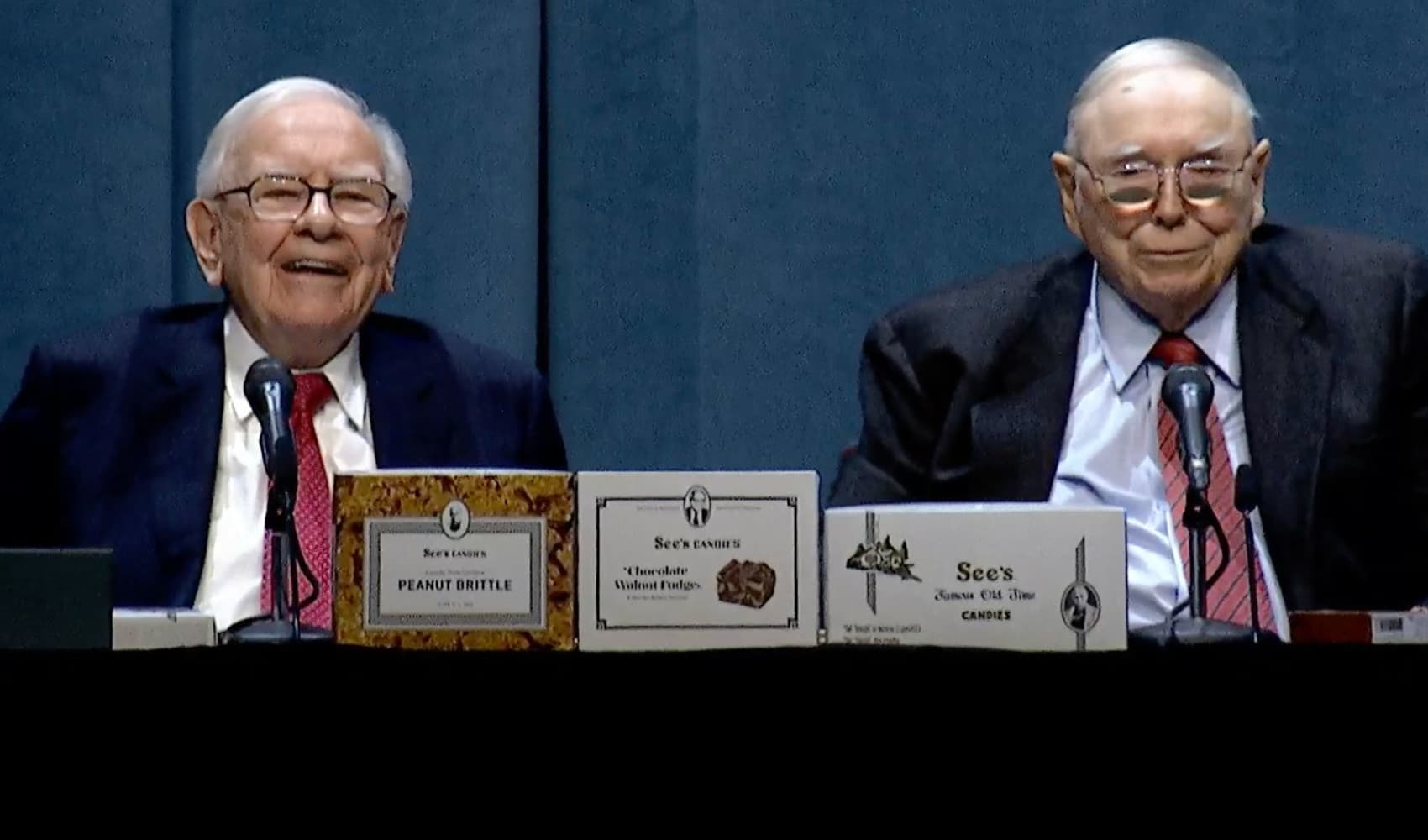
This is CNBC's live blog covering Asia-Pacific markets.
Asia-Pacific markets were mixed on Monday as investors continue to assess the impact of the banking troubles in the U.S and Europe. Deutsche Bank ended the week seeing a selloff of its U.S.-listed shares, after the German lender's credit default swaps jumped, adding onto lingering fears of contagion from turmoil seen in banking sector.
Hong Kong's Hang Seng index dipped 1.67% and the Hang Seng Tech index fell 2.83% in its final hour of trade. In mainland China, the Shanghai Composite fell 0.44% to finish at 3,251.4, and the Shenzhen Component rose 0.12% to close at 11,647.93.
In Australia, the S&P/ASX 200 rose 0.1% to close at 6,962.2, while Japan's Nikkei 225 gained 0.33% to end at 27,476.87 and the Topix closed 0.33% higher at 1,961.84.
We're making it easier for you to find stories that matter with our new newsletter — The 4Front. Sign up here and get news that is important for you to your inbox.
South Korea's Kospi fell 0.24% to close at 2,409.22, while the Kosdaq rose 0.43% to end at 827.59.
Wall Street ended its session on Friday with all three major indices higher to record a winning week, with Dow Jones Industrial Average gaining 1.2% week-to-date, while the S&P 500 and Nasdaq Composite climbed 1.4% and 1.7%, respectively.
— CNBC's Hakyung Kim, Sarah Min and Alex Harring contributed to this report.
Money Report
Market will probably probe any signs of weakness: JPMorgan
The market will see near-term pressure on bank stocks as they continue to "probe any signs of weakness to see if they push hard enough things will break," says Kerry Craig, Global Market Strategist at JP Morgan Asset Management.
Shares of Deutsche Bank's U.S.-listed shares on Friday saw sharp losses, after its credit default swaps jumped.
Craig said banks are fundamentally quite strong, but a "heightened sense of risk across some of the financial markets is likely to stay, particularly in the banking sector."
He added, "it's not that there's anything particularly wrong with these companies, it's just they're standing out a little bit from others in terms of ideas around their structural strength, or the idea that they may have something below the surface, which has not come to light."
He expects to hear more reassurances of stability from regulators and officials, so as to stem the idea of another credit crunch, whether in Europe or the U.S.
But fundamentally, Craig points out, he does not expect to see a repeat of the European banking crisis in 2012, as a lot of the liquidity provisions that were enacted are still in place, reducing risks for the sector.
— Lim Hui Jie
First Citizens to buy parts of Silicon Valley Bank
First Citizens Bank agreed to buy Silicon Valley Bank's deposits and loans, the U.S. Federal Deposit Insurance Corporation announced early Monday.
"The 17 former branches of Silicon Valley Bridge Bank, National Association, will open as First–Citizens Bank & Trust Company on Monday, March 27, 2023," the FDIC said in the release.
"Customers of Silicon Valley Bridge Bank, National Association, should continue to use their current branch until they receive notice from First–Citizens Bank & Trust Company that systems conversions have been completed to allow full–service banking at all of its other branch locations."
— Elliot Smith
Fosun Tourism Group sees revenue growth despite ‘uneven’ recovery
China's Fosun Tourism Group posted revenue of 14 billion yuan ($2 billion) in its full-year earnings last Thursday — marking a growth of 48.8% from a year ago.
The company also saw narrowed losses in adjusted EBITDA, marking an adjusted net loss of 497.3 million yuan in 2022 after seeing a loss of 2.8 billion yuan the previous year.
This is despite an uneven recovery of business across regions, with operating profits in Asia Pacific is still "far below the pre-Pandemic level," said Fosun Tourism Group.
Speaking to CNBC's "Squawk Box Asia" on Monday, its co-president Xu Bingbin said he foresees the peak of outbound travel from China to happen this summer — along with stronger rebound for domestic travel.
"Actually [during] Chinese New Year, we achieved 30% [more] than 2019 for our domestic business … our business is really taking off and we are gaining market share," he added.
Hong Kong-listed shares of Fosun Tourism Group rose 0.93% while shares of Fosun International fell 3.5% in Asia's afternoon trade on Monday, marking the lowest levels it's seen since December.
— Goh Chiew Tong
Hang Seng index falls, led by materials, energy and technology
Hong Kong's Hang Seng index saw losses largely dragged down by basic materials, energy and technology stocks on Monday.
Basic materials stocks fell by more than 1%, energy stocks fell 1.47%, and technology stocks fell 1.13%.
China Hongqiao Group saw the steepest losses of 5.1% after reporting its preliminary full-year earnings on Friday that saw its net profit attributable to owners drop nearly 46%.
China Petroleum & Chemical Corp fell 2.56% and China Shenhua Energy fell more than 3%. Shares of Baidu and Meituan also saw further losses in the afternoon session.
— Jihye Lee
Meituan shares slide despite better 2022 results
Shares of Chinese shopping platform Meituan fell over 6% on Monday, despite the company posting better results for 2022, last Friday.
Meituan posted a 21.4% year-on-year increase in revenue for the fourth quarter to 60.12 billion yuan ($8. 74 billion) while full year revenue came in 22.8% higher at 219.95 billion yuan.
Most notably, losses for Meituan narrowed substantially, dropping 79.7% in the fourth quarter to just over 1 billion yuan, while full year losses was reduced by 71.6% to come in at 6.69 billion yuan.
— Lim Hui Jie
China's industrial profit plunged 22.9% in January-February
China's industrial profit slumped 22.9% in the January to February period compared to a year ago, government data showed on Monday.
The reading last saw a 4% fall in industrial profit seen in December, according to Refinitiv data.
China's industrial profit print for the latest period marked the steepest decline since April 2020, Refinitiv showed.
China's onshore yuan slightly weakened after the report and stood at 6.8783 against the greenback.
— Jihye Lee
IMF says China's economy shows signs of strong recovery
International Monetary Fund managing director. Kristalina Georgieva said China is showing signs of robust economic recovery.
In remarks delivered in the 2023 China Development Forum, Georgieva said China's economy is seeing a strong rebound, with the IMF's January forecast putting China's GDP growth at 5.2% —a sizeable increase of more than 2 percentage points from the 2022 rate.
"This matters for China, and it matters for the world," she pointed out, saying China is set to account for around one third of global growth in 2023.
The IMF's analysis also noted a one percentage point increase in GDP growth in China, could lead to a 0.3 percentage point increase in growth in other Asian economies, on average.
"With such a solid recovery, China can now build on positive momentum and—through comprehensive policies—stay on the growth path towards convergence with advanced economies," Georgieva highlighted.
— Lim Hui Jie
Fed's Kashkari says banking stress brings U.S. closer to recession
The recent banking turmoil could bring the U.S. closer to a recession, Minneapolis Fed president Neel Kashkari said in an interview with CBS' Face The Nation.
"It definitely brings us closer right now, what's unclear for us is how much of these banking stresses are leading to a widespread credit crunch," he said when asked if the banking crisis with the mid-sized banks may have a real impact on the economy. "And then that credit crunch, just as you said, would then slow down the economy."
He said Fed officials are monitoring the impact from the fallout of the banking sector "very, very closely," and the current system has the "full support" of the Federal Reserve.
"The U.S. banking system is resilient, and it's sound," he said when asked about the stability of the banking system and its ability to control further risks seen in California and New York.
"The banking system has a strong capital position and a lot of liquidity and has the full support of the Federal Reserve and other regulators standing behind it," said Kashkari.
"I'm not saying that all of the stresses are behind us, I expect this process will take some time. But fundamentally, the banking system is sound," he said.
— Jihye Lee
CNBC Pro: "Sell into rallies": Morgan Stanley says European banks sector "not as attractive as it was"
In the wake of the recent banking stresses, Morgan Stanley has cautioned that the European banking sector is "not as attractive as it was" last week despite recent share price drops.
Strategists at the Wall Street bank also recommend 10 defensive stocks to own right now while selling European bank stocks "into any material rally".
CNBC Pro subscribers can read more here.
— Ganesh Rao
CNBC Pro: Rivian shares keep hitting lows. Here's where Wall Street sees it going next.
Most electric vehicle stocks are up this year, but Rivian is one exception.
Its shares keep hitting lows recently. Is Rivian just a cash-burning company, or does Wall Street see significant upside for the stock ahead? Here's what they say.
CNBC Pro subscribers can read more here.
— Weizhen Tan
Hong Kong's February inflation comes in lower than expected at 1.7%
Hong Kong's inflation rate slowed to 1.7% in February on a year-on-year basis, down from 2.4% in January and at its slowest pace since May 2022.
This was lower than expectations of 2.3%, with the city's census and statistics department saying that the largest increases in the consumer price index were seen in electricity, gas and water at 20.7%, as well as alcoholic drinks and tobacco at 14%.
The largest decline in inflation were for durable goods and basic food, coming in at 2.1% lower and 0.6% lower respectively.
— Lim Hui Jie
Japan's services producer price index rose 1.8% in February
Japan's services producer price index rose 1.8% in February year-on-year, up from a rise of 1.6% year-on-year seen in January.
Government data showed the reading marked the third consecutive month of accelerated gains.
The Japanese yen slightly weakened to 130.9 against the U.S. dollar following the report.
— Jihye Lee
Deutsche Bank's U.S.-listed shares pull off lows
Deutsche Bank's U.S.-listed shares slid 4.3% during midday trading, pulling off their lows. The bank stock earlier dropped 14% after the German lender's credit default swaps jumped, without an apparent catalyst.
Investor concerns over the health of the European banking industry eased somewhat after European Central Bank President Christine Lagarde said euro zone banks are resilient with strong capital and liquidity positions. Lagarde said the ECB could provide liquidity if needed.
Meanwhile, JPMorgan defended Deutsche Bank, saying Friday that investors should focus on the European bank's "solid" fundamentals.
— Sarah Min
Stocks making the biggest midday moves
Here are some of the names making the biggest moves midday:
GameStop -- The famed meme stock gained 2.5% in midday trading. The stock has been active since it reported its first profitable quarter in two years earlier this week.
Deutsche Bank — The German lender's U.S.-listed shares slid 5%, bouncing off its lows. The bank stock had been down about 14% after the bank's credit default swaps jumped without an apparent catalyst. JPMorgan defended Deutsche Bank Friday, saying investors should focus on the European bank's "solid" fundamentals.
Regeneron — Regeneron gained 2.2% after Jefferies upgraded the pharmaceutical stock to a buy from hold rating and said its Dupixent drug, in development with Sanofi, could serve as the next big catalyst for the company.
To see more companies making moves during midday trading, read the full story here.
— Brian Evans
Fed's Bullard says policy responses have been 'swift and appropriate'
St. Louis Federal Reserve President James Bullard said Friday that central bank policy should help contain cracks in the financial system.
"Continued appropriate macroprudential policy can contain financial stress, while appropriate monetary policy can continue to put downward pressure on inflation," Bullard said in a presentation.
His comments were similar to sentiments Wednesday from Fed Chairman Jerome Powell, who said interest rate hikes are targeted at inflation while special lending facilities will keep banks liquid.
Bullard called the Fed's actions to the banking problems "swift and appropriate." He also noted that even with the financial tumult, economic data has been stronger than expected and said inflation has "declined recently."
Presentation materials released with Bullard's speech did not indicate a position on where rates should go from here. Markets are pricing in a strong possibility the Fed will not hike when it meets again in May. Bullard is a nonvoting member of the rate-setting Federal Open Market Committee.
—Jeff Cox
CNBC Pro: Here's how to spot a good growth stock, according to one fund manager
"As a growth manager … how do you identify good growth businesses?" fund manager Ian Mortimer told CNBC Pro Talks on Wednesday, as he shared his strategy for spotting outperforming stocks.
Mortimer manages the growth and innovation-focused Guinness Global Innovators Fund, which counts the likes of Nvidia and Microsoft among its holdings.
Pro subscribers can read more here.
— Zavier Ong
Gold on pace to finish week higher
Despite seeing only a modest advance in Friday's session, gold is up 1.4% so far this week. If gold finishes Friday's session above its weekly flatline, it will mark the metal's fourth straight winning week.
— Alex Harring, Gina Francolla






